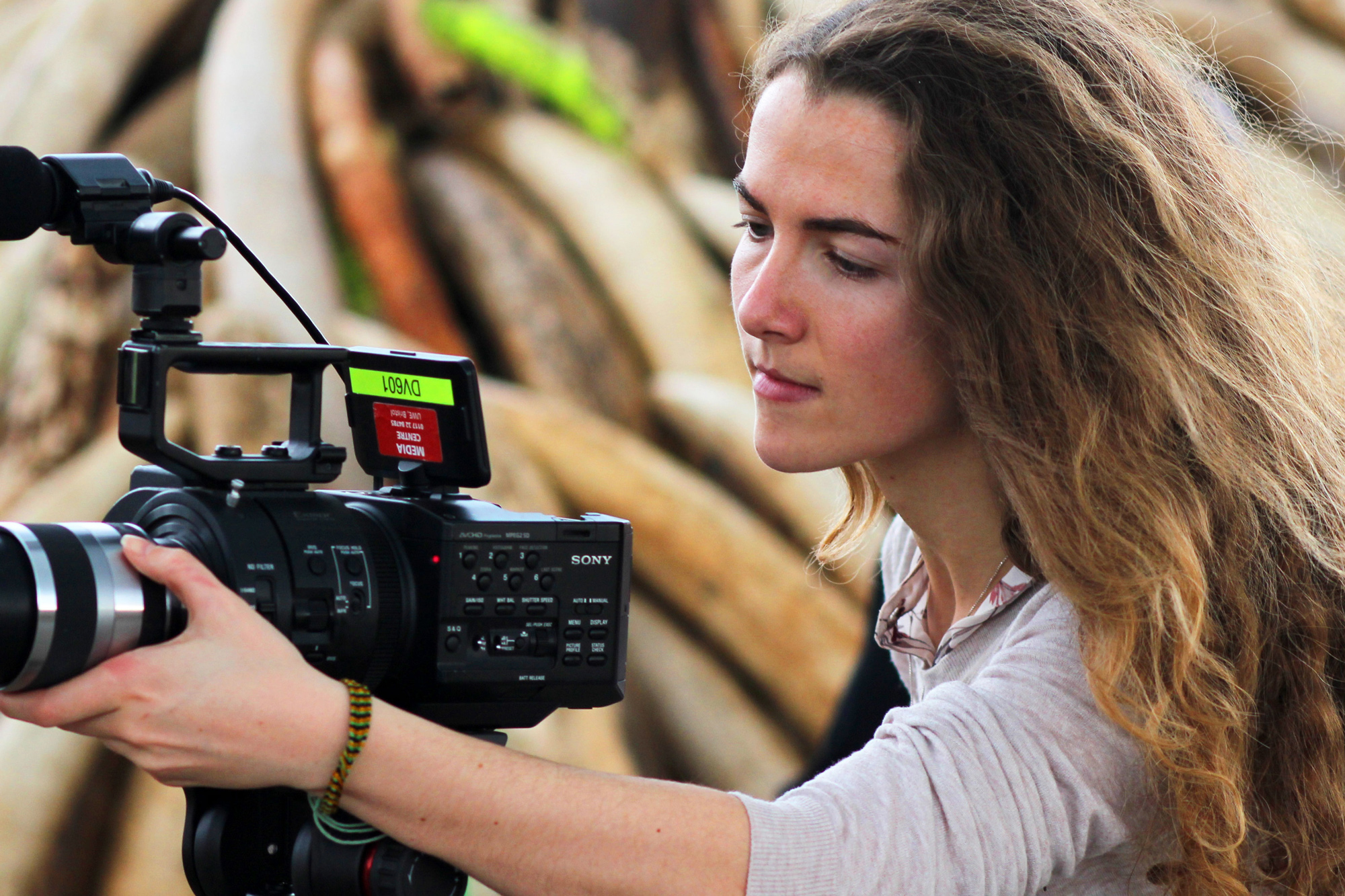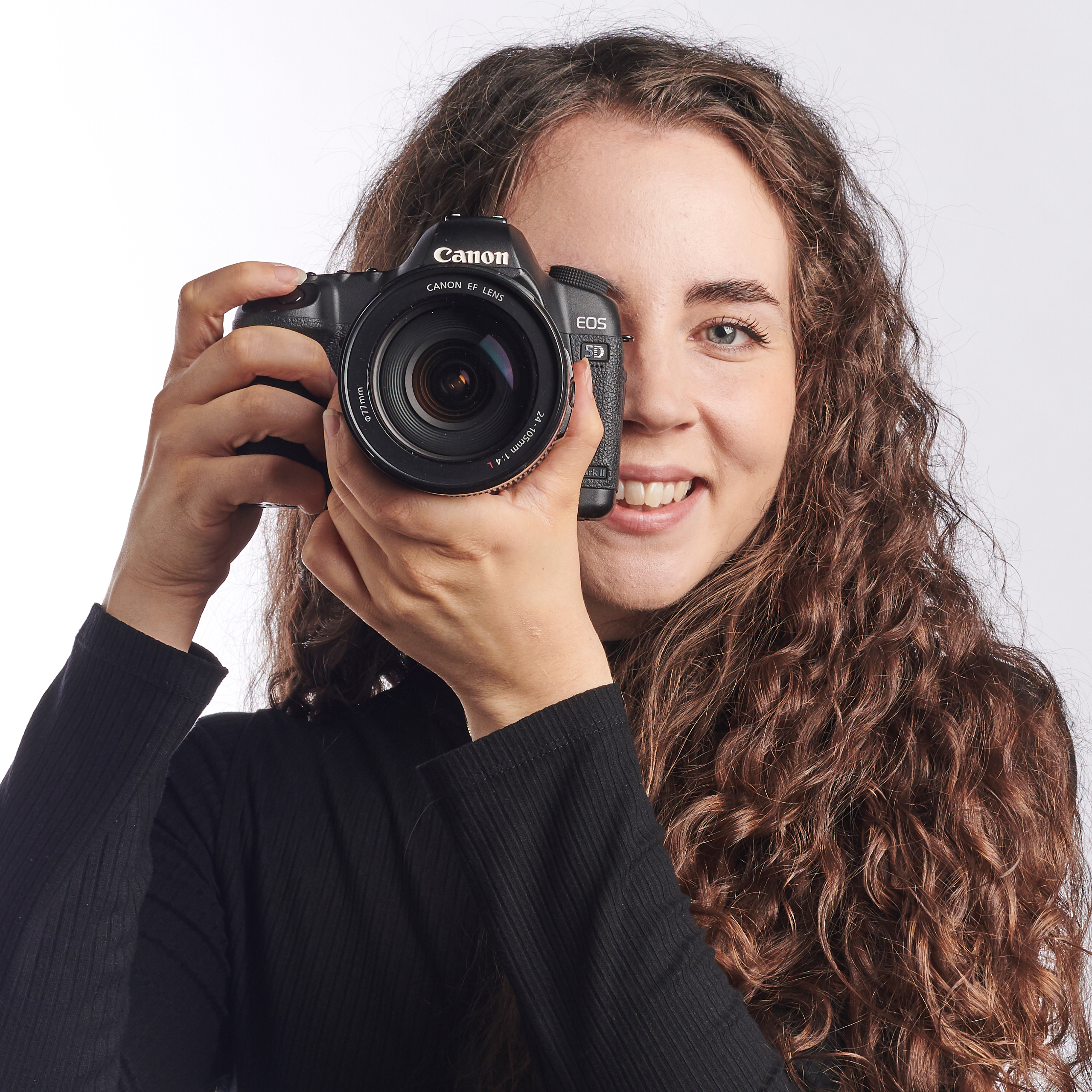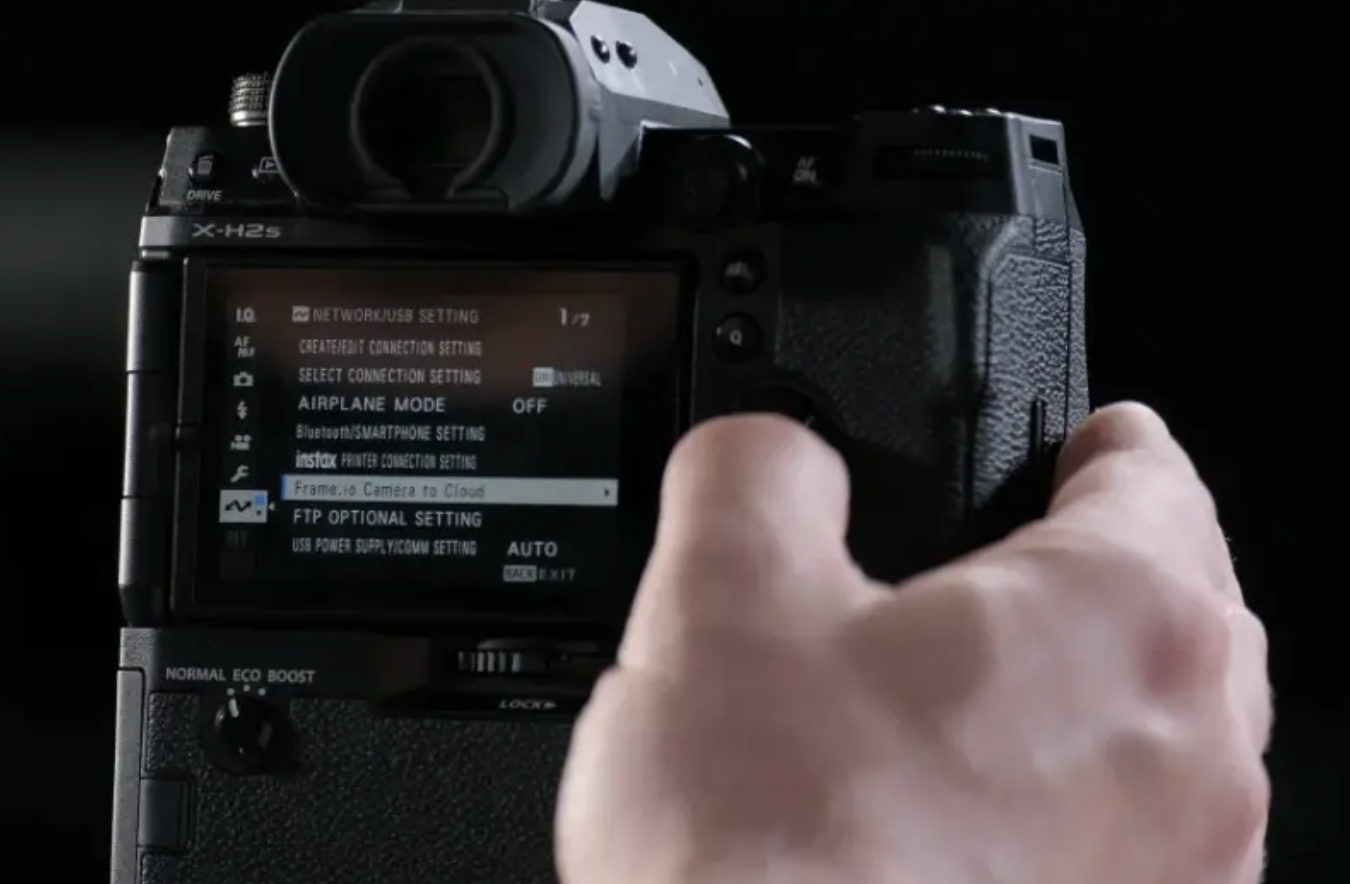Interview: Wildlife filmmaker Tania Esteban on her ultimate wildlife experience
Tania Esteban shares how a love of Sir David Attenborough and a zoology scholarship lead her to her filmmaking career

The best camera deals, reviews, product advice, and unmissable photography news, direct to your inbox!
You are now subscribed
Your newsletter sign-up was successful
Wildlife filmmaking is one of the most exciting careers you can pursue, with opportunities to see and film some of the world's rarest creatures in incredible locations. Tania Esteban decided from a young age that she wanted to pursue a career in wildlife filmmaking – and has never looked back since.
Tania Esteban is part of 22 women who are partnered with the Women Who Photo & Film campaign, which was originally launched by The Photography Show & The Video Show in 2018. This year, Tania and the other Women Who Photo & Film ambassadors will be hosting an informal networking session on Sunday 20 September from 17:00 BST onwards.
• Read more: Register FREE for The Photography Show & The Video Show Virtual Festival
01. Can you tell us how you got into wildlife filmmaking?
Being raised in the countryside of Andalucía, Spain, I've always been hugely passionate about wildlife, photography, film and storytelling. I've wanted to work in natural history filmmaking ever since I was very young. I grew up watching natural history documentaries with Sir David Attenborough and was dazzled by the incredible imagery of birds of paradise and high-speed shots of cheetahs hunting.
Seeing the 10 minute 'making of' sections at the end of each program made me realize that I could pursue a career in this and combine my love of the visual arts with my love of science. However, what was most important to me was to try and make even the smallest of differences to our planet and help encourage others to care about the earth and its incredible biodiversity.
I got a scholarship to study zoology at university and then I subsequently got a masters in wildlife filmmaking in Bristol. There, I joined the radio, filmmaking and photography societies so that I could begin to create a portfolio of work. I then got my CAA drone license and began work as a junior researcher and camera assistant while I was studying for my MA. My most recent work was on BBC Big Cats and then as a researcher on Wild Cities.
The best camera deals, reviews, product advice, and unmissable photography news, direct to your inbox!
I'm now at Silverback Films working on a new 8K BBC Landmark series. I also produce and do freelance camerawork for Panasonic and Atomos as one of their ambassadors, creating exclusive content for their channels in the UK and Europe.
02. Are university courses important if you want to get into wildlife filmmaking?
I would say that passion and a keen eye for storytelling is more important. This is fundamental to what we do and it's what's going to get you through the more difficult times. Passion can't be taught – the joy and energy that you experience when you do what you do best comes from within.
Stories have the power to inspire a single person, but they also have the potential to influence the way we live in our societies. They can even have a global impact and touch millions of lives around the world. I was lucky that I knew what career I wanted to pursue for such along time. I enjoyed academia, so I chose to go to university and follow this path. The degree itself was a fantastic course that gave me a solid grounding and understanding of the complex realities of the natural world.
If you do go, use your time wisely and make the most of the superb facilities that universities provide. You don't necessarily have to go down the traditional science route, but it does help a great deal when researching natural history content. Contacting scientists is a huge part of what we do in editorial, so understanding the science and being able to extract stories from complex papers is always a great asset to any team.
03. Do you think there still needs to be more women in wildlife camerawork?
While women are well-represented in the editorial side of production, we're significantly underrepresented in the photographic and filmmaking side – especially in the wildlife filmmaking industry. A shocking 2% or less of the camera operators used on natural history productions are female. It's something I feel very passionate about. I give talks to try and give advice and encouragement to young women who want to pursue camerawork.
Equally, trying to see changes in attitudes towards female camerawomen in companies is crucial. Even fewer women get the opportunity to both direct and shoot as well. I was inspired to work in this industry (aside from Attenborough of course) by the very talented Sophie Darlington and Justine Evans. They're my absolute heroes in the world of cinematography and were really the only two women shooting when I was growing up.
A lot of the discrimination in wildlife filmmaking lies with the notion that women can't cope as well in the remote and extreme environments when filming wild animals. The idea that we can't deal with the potential dangers, carry equipment, shoot with high end cameras or use gimbal rigs is very frustrating.
Thankfully, things are changing, but I would very much like to help women share their stories through the visual medium without letting their gender stop them. I'm very lucky that the brilliant company I work for (Silverback Films) allows me to pursue both editorial and technical work, which I greatly enjoy.
04. How important has your zoology background been in your career?
I would say that it helps me with everything I do as a researcher. Being able to understand the scientific principles and know what will work visually and logistically is the most important aspect of pre-production. You may think a particular animal with a specific behavior is incredible, but if it can't be portrayed visually in an effective way then you don't want the team to spend thousands of pounds on it.
A background is zoology is also helpful in being able to build up a rapport with the scientists we work with. They're the link between the subject and the production, so they'll have knowledge and insights into the species that no one else will. If you can easily relate to their work and speak their language, it gives them confidence that you'll represent their work in the best way you can.
05. Can you tell us about your ultimate wildlife experience?
This is a hard one! I'd have to say that one of my favorite highlights was when I was filming in Papa New Guinea, one of the most biodiverse places on our planet and home to over 895 bird species, including the famed birds of paradise. Many also know it to be a notoriously dangerous place for women to travel to, with high rates of domestic abuse.
Sadly, this beautiful country is not on the top of many solo female travelers' lists. I recently went on a shoot with a team. Getting the opportunity to visit this staggeringly beautiful country, meet its incredible people and see the remarkable wildlife was truly a blessing. The women I met in some of the local villages were equally inspirational.
06. What will we learn at your talk, 'The workflow of a wildlife filmmaker'?
Hopefully I'll be instilling a desire to get out there, film and tell stories. However, I'll also be covering how the industry works with a few personal film examples. Some of the topics I'll be covering will include what goes into making a natural history documentary, what elements you can take away to apply to your own nature films, what is sound important in wildlife films and more.
Hopefully it'll give people at different levels an insight into the industry. I'll also be available to answer questions before or after the talk as well.
Register FREE for The Photography Show & The Video Show Virtual Festival
Read more
Welcome to The Photography Show: Burst Mode!
How to use your camera as a webcam
How to set up a virtual hangout: the easy way to get people together on Zoom
With over a decade of photographic experience, Louise arms Digital Camera World with a wealth of knowledge on photographic technique and know-how – something at which she is so adept that she's delivered workshops for the likes of ITV and Sue Ryder. Louise also brings years of experience as both a web and print journalist, having served as features editor for Practical Photography magazine and contributing photography tutorials and camera analysis to titles including Digital Camera Magazine and Digital Photographer. Louise currently shoots with the Fujifilm X-T200 and the Nikon D800, capturing self-portraits and still life images, and is DCW's ecommerce editor, meaning that she knows good camera, lens and laptop deals when she sees them.

